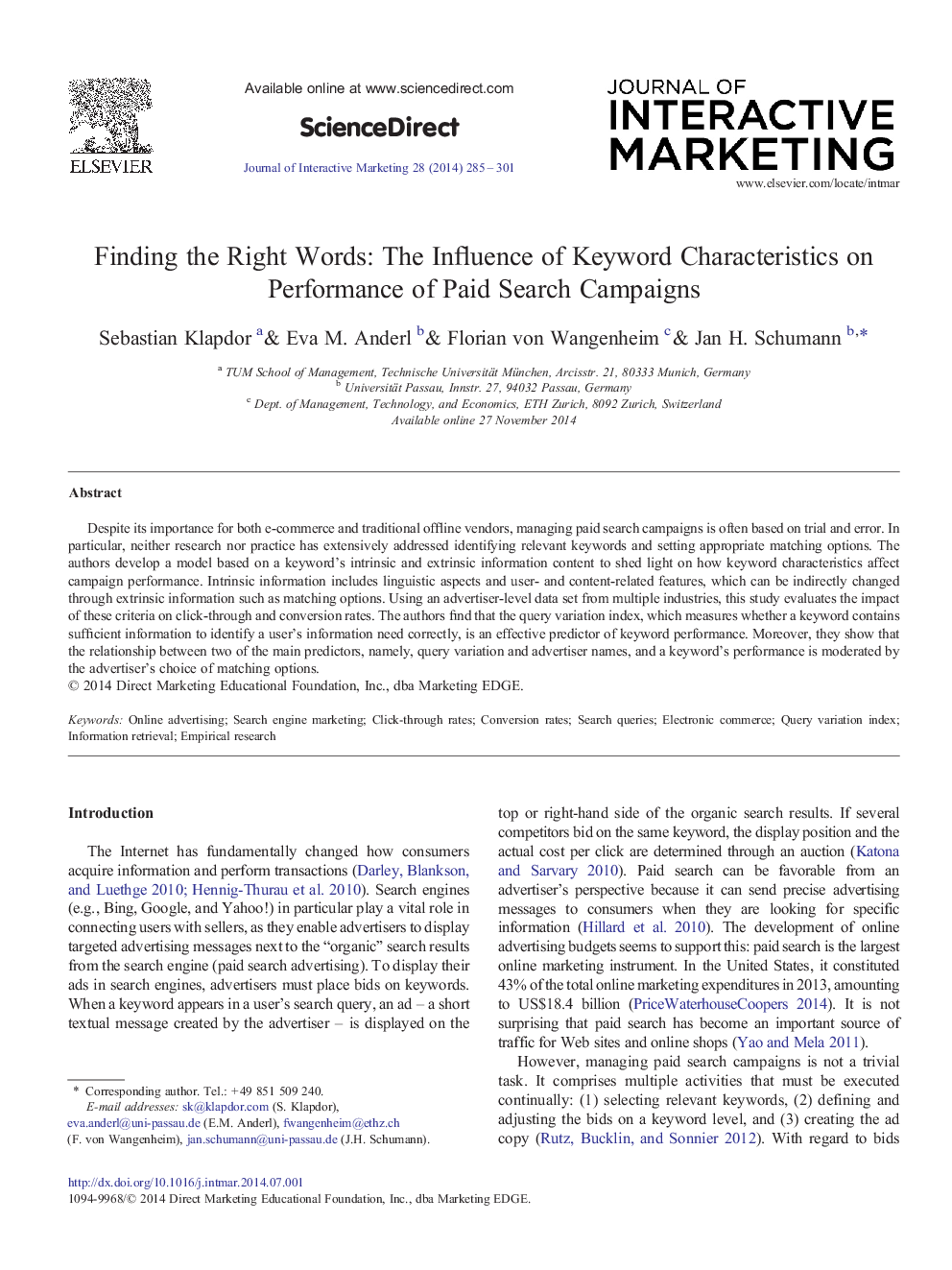| Article ID | Journal | Published Year | Pages | File Type |
|---|---|---|---|---|
| 886051 | Journal of Interactive Marketing | 2014 | 17 Pages |
•We develop a theoretical model for managing paid search campaigns.•The model covers linguistic, user-, and content-related aspects.•We propose the query variation index (QVI) as a new indicator.•QVI indicates whether a keyword allows identification of a user's information need.•QVI turns out to be a very good predictor for keyword performance.
Despite its importance for both e-commerce and traditional offline vendors, managing paid search campaigns is often based on trial and error. In particular, neither research nor practice has extensively addressed identifying relevant keywords and setting appropriate matching options. The authors develop a model based on a keyword's intrinsic and extrinsic information content to shed light on how keyword characteristics affect campaign performance. Intrinsic information includes linguistic aspects and user- and content-related features, which can be indirectly changed through extrinsic information such as matching options. Using an advertiser-level data set from multiple industries, this study evaluates the impact of these criteria on click-through and conversion rates. The authors find that the query variation index, which measures whether a keyword contains sufficient information to identify a user's information need correctly, is an effective predictor of keyword performance. Moreover, they show that the relationship between two of the main predictors, namely, query variation and advertiser names, and a keyword's performance is moderated by the advertiser's choice of matching options.
